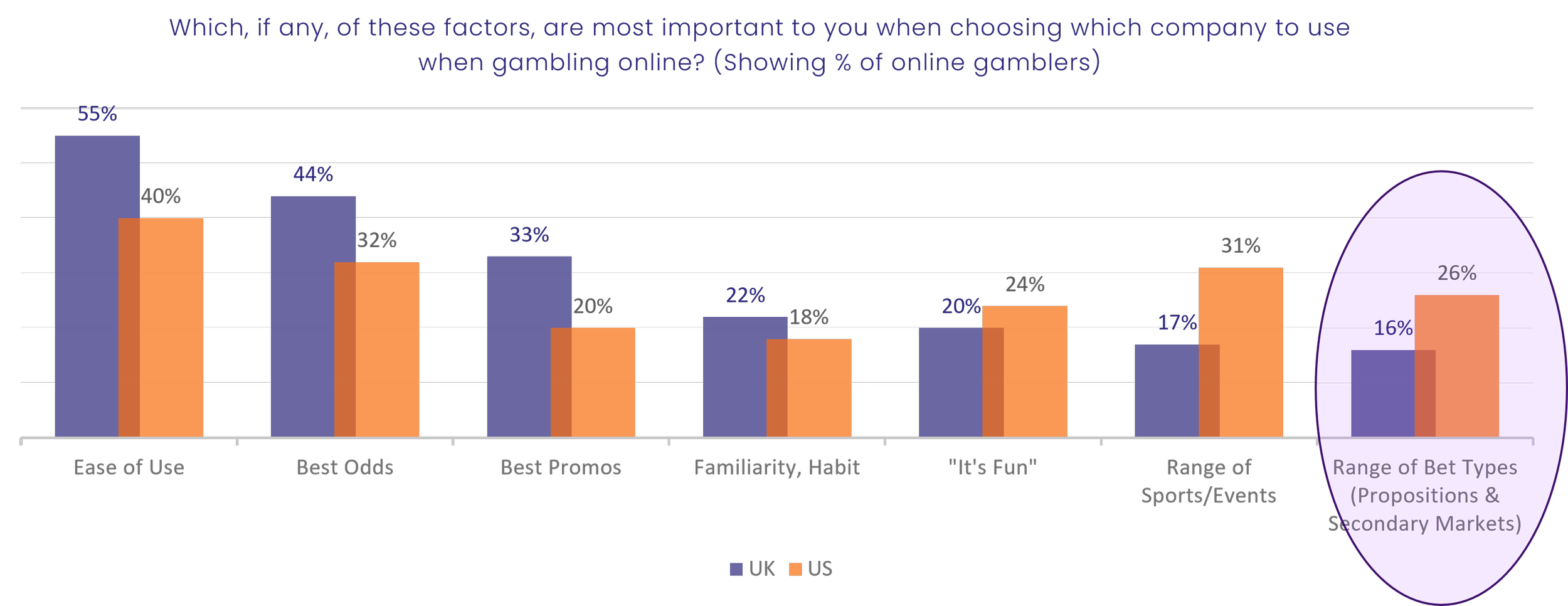The Legacy Problem
The current state of sportsbook back-end trading technology.
Increasingly complicated and fragmented supplier ecosystems have made it challenging for many Online Sportsbooks (OSBs) to adequately maintain their technology infrastructure in a way that fosters business agility and innovation.
As of 2024 traditional liability management tools that inform traders what their liability is on a particular outcome are considered a secondary tool for managing risk. In OSBs trading departments they do not exist at all.
“94% gaming executives globally believe legacy infrastructure is greatly hindering their business agility.
”
Manual Trading Operations
Efficient trading systems are essential for a sportsbook's success. Yet for most Sportsbooks their cumbersome & rigid platforms have fragmented their risk and liability management tools across separate departments and teams. So sportsbooks are employing large teams of traders to manually supervise individual events.
This reliance on manual intervention at all stages of the trading lifecycle is expensive, inefficient, reactive, and prone to errors.
The Bet Ticker
In OSB operations the main risk management tool for their core products is the “Bet Ticker”. Large teams of traders are employed to manually review each individual bet. Traders review each individual bet, comparing the prices against those of competitors to ensure the offered price is not higher than the market average. A trader who accepts a bet on a price favorable to the customer immediately corrects the price to a market average, and then flags the client a ‘threat’ - limiting their ability to bet on future events. This process is called “stake-factoring”
Manual stake-factoring:
Is adversarial to the customer.
Ensures odds are generic market averages.
Means the sportsbook’s exposure to an unfavorable outcome is judged solely on the most recent bet placed.
Ignores previous bets on the event, leading to suboptimal pricing decisions.
Price Homogenization
As a result of relying on the "Bet Ticker," sportsbooks encourage their trading staff to maintain unremarkable pricing. A trader who informs leadership that the price they accepted on a winning bet was uniquely attractive risks jeopardizing their career.
Moreover, suppliers proudly offer services that alert sportsbooks when their pricing deviates from the norm, emphasizing their ability to do so quickly. OSBs pay substantial fees for these services.
However, homogenized pricing is not what customers want. Bettors are becoming increasingly savvy, seeking value and choice in their betting options.
“Clear differentiation will… become more important in an increasingly commoditized OSB operator market
”
Player Engagement
In recent years, operators have increasingly focused on expanding the range of markets available for individual games. This has often left bettors navigating a sea of banal and arbitrary propositions, with little appeal to seasoned bettors. Meanwhile, inexperienced players are enticed to parlay numerous random outcomes in hopes of a big payout. However, the odds are heavily against them, leading to quicker losses. While the short-term increase in hold may seem appealing to operators, it ultimately results in higher customer attrition and increased Customer Acquisition Costs (CAC).
Oddsflow seeks to refocus attention on the core markets—1X2, totals, point spreads, and moneylines. By prioritizing these high-volume betting types, operators can achieve more sustainable profitability, fostering long-term player engagement rather than burning them out.
“When asked, customers ranked the breath and selection of secondary markets and propositions 7th as the most important factor when choosing a sportsbook.
”
HR Costs
Manual operations, a reliance on a "bet ticker" for price homogenization and limiting client wagers, along with fractured trading ecosystems, mean that traders, unaided by legacy software, are forced to fill computational gaps with low-skilled, data-entry tasks. As a result, HR costs in trading departments are ballooning at a time when operators are seeking significant redundancies or have committed to cost-saving through consolidation.
IBISWorld Inc reports:
Wages are the most significant cost in the industry, accounting over 30.0% in 2024. This figure has grown significantly since 2019, when wage costs represented nearly half that. By 2030 it is expected to be 43.5%.
Fractured Problems & Fractured Solutions
In a bid to tackle the problem some sportsbooks are choosing to outsource their trading functions to B2B services, but this has significant disadvantages around dependency, cost, reduced control (i.e. further price homogenization), and makes an operators regulatory standing vulnerable to 3rd party mistakes.
Meanwhile, other B2B operators in the iGaming space are inundating sportsbooks with increasingly exotic and complex products, along with their accompanying administrative tools. While some of these offerings are undoubtedly exciting, outsourcing to new and emerging technologies only exacerbates the fractured nature of OSB operations and further drives up costs.
At Oddsflow, we strongly believe that the solution to these problems are computational systems that allow traders to algorithmically manage risk. Automatic pricing algorithms will become increasingly important, and a lean Trading Management System that leverages data curation and AI implementation within online sportsbook operations will help operators reduce costs, gain valuable business insights, and ultimately operate more profitably.



